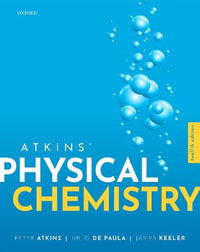Lasers are employed throughout science and technology, in fundamental research in chemistry, physics and engineering, the remote sensing and analysis of atmospheric gases or pollutants, communications, medical diagnostics and therapies, and in various forms of manufacturing, including microelectronic devices. Understanding the principles of the operation of lasers which underlies all of these areas is essential for a modern scientific education.
Building on the first edition, Laser Experiments for Chemistry and Physics Second Edition includes experiments with new and improved methods and instrumentation. It explores the characteristics and
operation of lasers through laboratory experiments designed for the undergraduate curricula in chemistry and physics. Introductory chapters describe the properties of light, the history of laser invention, the atomic, molecular, and optical principles behind how lasers work and the most important kinds of lasers available today. Other chapters include the basic theory of spectroscopy and computational chemistry used to interpret laser experiments and the applications of lasers in spectroscopy
and photochemistry. Experiments range from simple in-class demonstrations to more elaborate configurations for advanced students. Each chapter has historical and theoretical background, as well as
options suggested for variations on the prescribed experiments. This text will be useful for undergraduate students in advanced lab classes, for instructors designing these classes, or for graduate students beginning a career in laser science. It can also be used as a supplementary text for courses in molecular spectroscopy or optics.
Industry Reviews
Review from previous edition Laser Experiments for Chemistry and Physics is a fine resource for experienced physics instructors looking to set up new experiments in advanced lab courses. Compton and Duncan provide both guidance and inspiration in their outstanding collection of laser experiments. * Jason Stalnaker, Physics Today *
A high-quality and useful book ... instructors and students specially focused on the fields of physical chemistry and spectroscopy will most likely find the highest interest; however, readers interested in broader areas of chemistry and physics should also find this work very useful. If you belong to this potential audience, the purchase of Laser Experiments for Chemistry and Physics will doubtless be a good investment. * Germano Montemezzani, Journal of Applied Crystallography *




![Ready for Dessert : My Best Recipes [A Baking Book] - David Lebovitz](https://www.booktopia.com.au/covers/200/9780593836293/9503/ready-for-dessert.jpg)



















